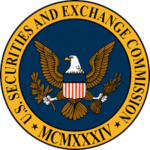In other news, MarketAxess has a new technology chief, Fidelity gets into the regtech business, and CRD hires from Broadridge.
SEC Lowers the PE Threshold for Form PF
 The SEC is proposing changes to Form PF, which is the reporting form “for certain SEC-registered investment advisers to private funds,” including lowering the threshold for firms that come into scope for the reporting requirement.
The SEC is proposing changes to Form PF, which is the reporting form “for certain SEC-registered investment advisers to private funds,” including lowering the threshold for firms that come into scope for the reporting requirement.
The SEC proposal “would decrease the reporting threshold for large private equity advisers from $2 billion to $1.5 billion in private equity fund assets under management,” officials say. “Lowering the threshold would result in reporting on Form PF that continues to provide robust data on a sizable portion of the private equity industry.”
The proposed amendments are intended to help the Financial Stability Oversight Council (FSOC) better assess systemic risk and “to bolster the Commission’s regulatory oversight of private fund advisers and its investor protection efforts in light of the growth of the private fund industry,” according to the SEC.
“We have identified significant information gaps and situations where we would benefit from additional information,” says SEC Chair Gary Gensler, who notes that Form PF got its start in 2011. “Among other things, today’s proposal would require certain advisers to hedge funds and private equity funds to provide current reporting of events that could be relevant to financial stability and investor protection, such as extraordinary investment losses or significant margin and counterparty default events. I am pleased to support it.”
Since 2011, the private fund industry “has grown in size to $11 trillion and evolved in terms of business practices, complexity of fund structures, and investment strategies and exposures. The Commission and Financial Stability Oversight Council now have almost a decade of experience analyzing the information collected on Form PF,” Gensler says.
The proposed amendments would “require current reporting for large hedge fund advisers and advisers to private equity funds. These advisers would file reports within one business day of events that indicate significant stress at a fund that could harm investors or signal risk in the broader financial system,” according to the SEC. “The proposed amendments would provide … more timely information to analyze and assess risks to investors and the markets more broadly.”
The proposal would also require more information about large private equity funds and large liquidity funds “to enhance the information used for risk assessment and the Commission’s regulatory programs,” according to the SEC. “The proposal will be published on SEC.gov and in the Federal Register. The public comment period will remain open for 30 days after publication in the Federal Register.”
The text of the actual rule can be found here: https://bit.ly/3AXZcTe and a fact can be found here: https://bit.ly/34gVJDB
MarketAxess Taps Goldman Sachs for Chief Information Officer

Nick Themelis
MarketAxess Holdings Inc., which characterizes itself as an operator of an electronic trading platform for fixed income securities, and a provider of market data and post-trade services for the global fixed-income markets, reports that Nash Panchal will succeed Nick Themelis as its chief information officer.
Themelis’s retirement is effective February 28, 2022, after 16 years as the chief information officer. Panchal will join in March after more than 20 years at Goldman Sachs, according to a statement, which also notes that Themelis “will remain with the company in an advisory capacity through 2022 to ensure a smooth transition.”
Panchal will be based in New York and report to Chris Concannon, the MarketAxess president and chief operating officer (COO), per the statement. — L. Ch
Fidelity Investments Launches New RegTech Biz
 Fidelity Investments, which favors a trademark symbol after its name, reports the launch of Saifr, a regulatory technology business that “offers human augmentation tools to help financial institutions facilitate the creation, review, and approval of public communications to mitigate brand, reputational, and regulatory risk,” the firm says in a statement.
Fidelity Investments, which favors a trademark symbol after its name, reports the launch of Saifr, a regulatory technology business that “offers human augmentation tools to help financial institutions facilitate the creation, review, and approval of public communications to mitigate brand, reputational, and regulatory risk,” the firm says in a statement.
Saifr offers a “human-machine dynamic, enabling computers to do the monotonous tasks of compliance review, allowing marketers and compliance teams to focus on the creative and complex details of compliance review,” the firm says.
It is “just one example of Fidelity leveraging its expertise to develop complex businesses, products, and tools in a highly regulated industry and bringing that expertise to market for the industry,” per Fidelity.
Fidelity Investments’ in-house software incubator and digital studio, Fidelity Labs, was founded in 2005. — L. Ch
Charles River Fills CPO Post via Broadridge Hire

Nidhi Singh
Charles River Development, a State Street company, has appointed Nidhi Singh to be its chief product officer. The post is newly created.
As CPO, her mandate includes providing “leadership to CRD’s technical product strategy and product marketing, including the identification, development and execution of the overall product roadmap,” as well as “integration” with its platform strategy.
Prior to joining, she “led global technology and operations at Broadridge and held key senior leadership roles at tier one banks and fintech firms including Goldman Sachs and Trading Technologies,” according to the Charles River Development statement.
She also is the co-author of Electronic Exchanges: The Global Transformation from Pits to Bits, a tome about the “transformation of financial exchanges from floor to electronic trading,” per the statement. — L.Ch
Need a Reprint?